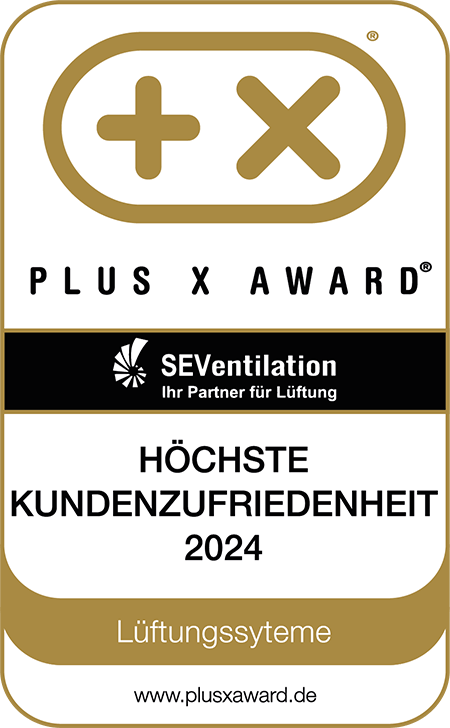

Dibt approval for
ventilation units
The German Institute for Building Technology (DIBt) is responsible for issuing approvals for building products, which also includes ventilation units and thus also the DIBt approval for ventilation units. Several product groups from the field of ventilation or living space ventilation (or flat ventilation) are affected by this.

For certain ventilation units, there are neither harmonised standards (i.e. standards that were developed on the basis of a mandate from the European Commission and lead to CE marking of the construction products) nor European technical assessments (which also lead to CE marking). Due to an entry in the Building Rules List B Part 2, there is an approval obligation for certain ventilation units. The approval obligation (DIBt approval for ventilation units) exists for ventilation units with heat recovery and exhaust air units without heat recovery according to DIN 18017-3. Thus, decentralised ventilation systems with heat recovery such as the SEVi 160 also require approval.
According to Informationsverein Besser Bauen (IVBB), building owners and planning offices can be liable to prosecution if a ventilation unit is installed without DIBt approval. Ventilation units without DIBt approval are often cheaper than approved systems. The approval costs of a decentralised alternating system can be up to 30,000 euros plus the engineering costs in your own company. If the non-approved unit has to be removed again, e.g. because the tenant of a flat does not want a unit without approval, then costs of several thousand euros can quickly arise in order to replace the unit with a DIBt-approved system. Of course, the tenant has the right on his side here.
Not only the monetary aspect plays an important role, essential things are checked at the DIBt. The manufacturer must disclose the composition of all components of a ventilation system. DIBt checks whether these individual components can pose a risk to the health of the occupants. A CE declaration must be filed by the manufacturer for each ventilation unit. In the CE declaration, the manufacturer guarantees, among other things, that the ventilation unit complies with the following standards or normative documents: EMC Directive (electromagnetic compatibility), RoHS Directive (Directive 2011/65/ on the restriction of the use of certain hazardous substances in electrical and electronic equipment) and the EC Declaration of Conformity according to the Machinery Directive.
Furthermore, the manufacturer must have his ventilation unit tested by an independent institute (there are 3 different accredited institutes in Germany) according to DIBt. Not only obvious technical data (degree of heat provision, volume flow, power consumption) are checked. In addition, various properties such as the sealability of the inner panel, frost protection or the potential occurrence of short-circuit currents in DUO units are examined. The building material class verification of the individual materials in the ventilation system must also be specified. Ventilation systems must achieve at least fire protection class B2 according to DIN 4102-1 or E according to EN 13501-1 in order to obtain DIBt approval for ventilation units.
>Note: Laws, standards and guidelines can change, for this reason we do not give any guarantee on the statements and contents made above. No claims for damages can be made against us on the basis of this text. If you have any further questions regarding the approval procedure and other approval obligations, please contact SEVentilation GmbH or the DIBt.